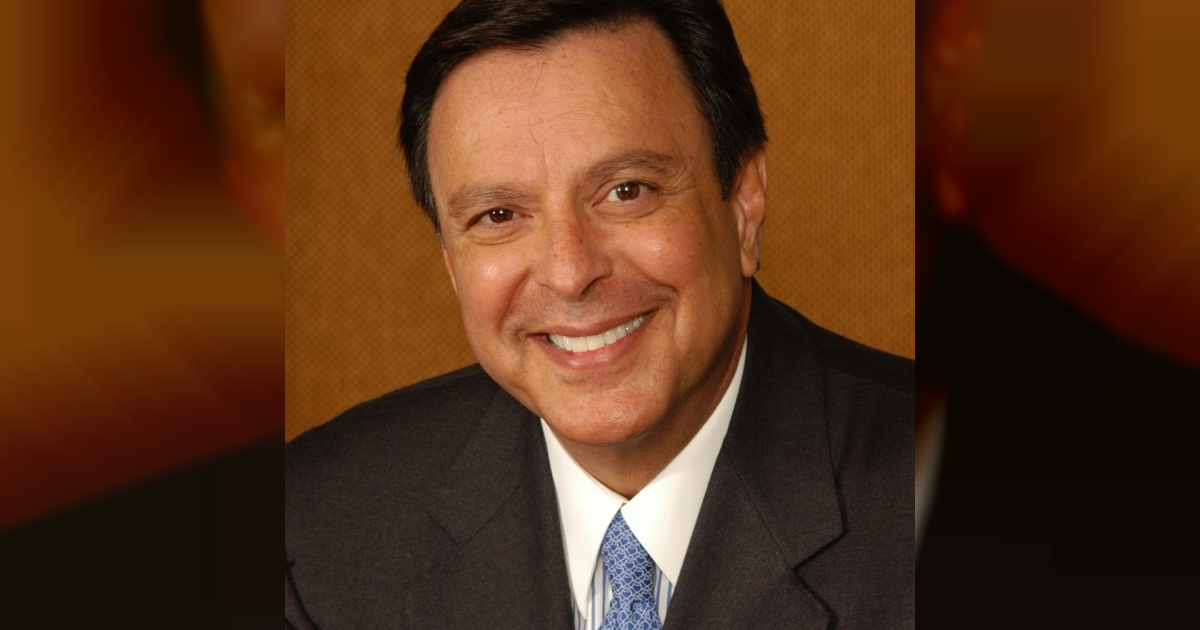Mike Fernández, a prominent Cuban-American businessman in the U.S. healthcare sector and former Republican, has strongly criticized the silence of Miami’s key Cuban-American Republican leaders in response to President Donald Trump's immigration crackdown. In an open letter addressed to Marco Rubio, María Elvira Salazar, Mario Díaz-Balart, and Carlos Giménez, Fernández accused them of betraying the communities they are supposed to represent.
“If you cannot find your voice now or understand the difference between one dictator and another, perhaps it's time to make way for others who can and who possess the vision that you may lack,” the businessman wrote. His letter was disclosed by El Nuevo Herald, to which Fernández also gave a phone interview, asserting his readiness to fund leaders who uphold immigration and democratic values.
“Our four representatives are simply bowing to the presidency out of fear for themselves and their jobs. They will be remembered for turning their backs on their community,” he told the newspaper. Fernández, President of MBF Healthcare Partners, labeled the Trump administration's decision to revoke immigration protections for those fleeing dictatorships as “hypocrisy,” noting, “just as our families once did.”
He added that “this silence is not neutrality or ignorance; it is complicity and cowardice,” emphasizing that it has instilled fear and caused real harm to many in their districts. A prolific political donor in Florida, Fernández has supported both Republicans and Democrats, investing millions in Jeb Bush's 2016 presidential campaign and serving as co-finance chair for Rick Scott's 2014 re-election. In the past, he also made smaller contributions to Rubio and Salazar.
Economic Concerns Over Immigration Policies
During his conversation with El Nuevo Herald, Fernández warned that current immigration policies could undermine the U.S.'s economic competitiveness by driving away foreign talent. “America’s image has shifted: from a country that welcomed immigrants to one that deports students for their political views,” he remarked.
He also expressed regret over the dismantling of the post-World War II international order under Trump's agenda, labeling the cuts to foreign aid aimed at promoting democracy in countries like Cuba, Venezuela, and Nicaragua as a “betrayal.”
Republican Leaders Respond
Among the criticized leaders, María Elvira Salazar publicly responded, defending her bipartisan immigration reform proposal known as the Dignity Act. “Who else in Congress has stood up to both parties to defend those without papers or criminal records but who perform jobs other Americans refuse? Only me,” she stated. However, Salazar has avoided directly confronting the Trump administration, focusing her criticism on former President Joe Biden, which some see as a strategy to remain aligned with the Republican base without contradicting Trump.
“They can talk as much as they want, but actions are very evident,” Fernández concluded in his interview with El Nuevo Herald.
In recent days, Cuban-American Republican leaders have increased their media presence in response to criticism over their stance on former President Donald Trump's immigration policies. Congresswoman María Elvira Salazar reacted publicly when labeled a "traitor" on a billboard in Miami, asserting that her commitment to immigrants remains strong, especially for Cubans under the I-220A immigration status.
Salazar thanked those who funded a counter-campaign with new billboards highlighting her work and reaffirmed her promise to fight for the legalization of these immigrants, even under a possible Trump administration. Meanwhile, Congressman Mario Díaz-Balart has focused on securing concrete commitments from Trump to include a “realistic and compassionate” immigration policy in his 2026 electoral platform.
Díaz-Balart claims to be engaged in behind-the-scenes discussions to persuade the former president to reconsider the cancellation of humanitarian parole, arguing that this program has been crucial in maintaining immigration control and protecting those fleeing authoritarian regimes.
Similarly, Representative Carlos Giménez has requested financial support to continue his congressional work and pledged to defend immigrants who arrived legally under previous policies. Although he has avoided direct confrontations with Trump, Giménez has voiced his disagreement with measures that would endanger vulnerable communities, particularly those comprised of Cubans, Venezuelans, and Nicaraguans.
Key Questions on Cuban-American Leaders and Immigration Policies
What is Mike Fernández's main criticism of Cuban-American Republican leaders?
Mike Fernández criticizes these leaders for their silence and perceived betrayal of their communities in response to Trump's aggressive immigration policies.
How has María Elvira Salazar responded to the criticisms?
María Elvira Salazar defended her Dignity Act, a bipartisan immigration reform proposal, and emphasized her commitment to immigrants, particularly Cubans under the I-220A status.
What are the economic concerns raised by Fernández regarding immigration policies?
Fernández warned that current immigration policies could harm U.S. economic competitiveness by driving away skilled foreign talent.
